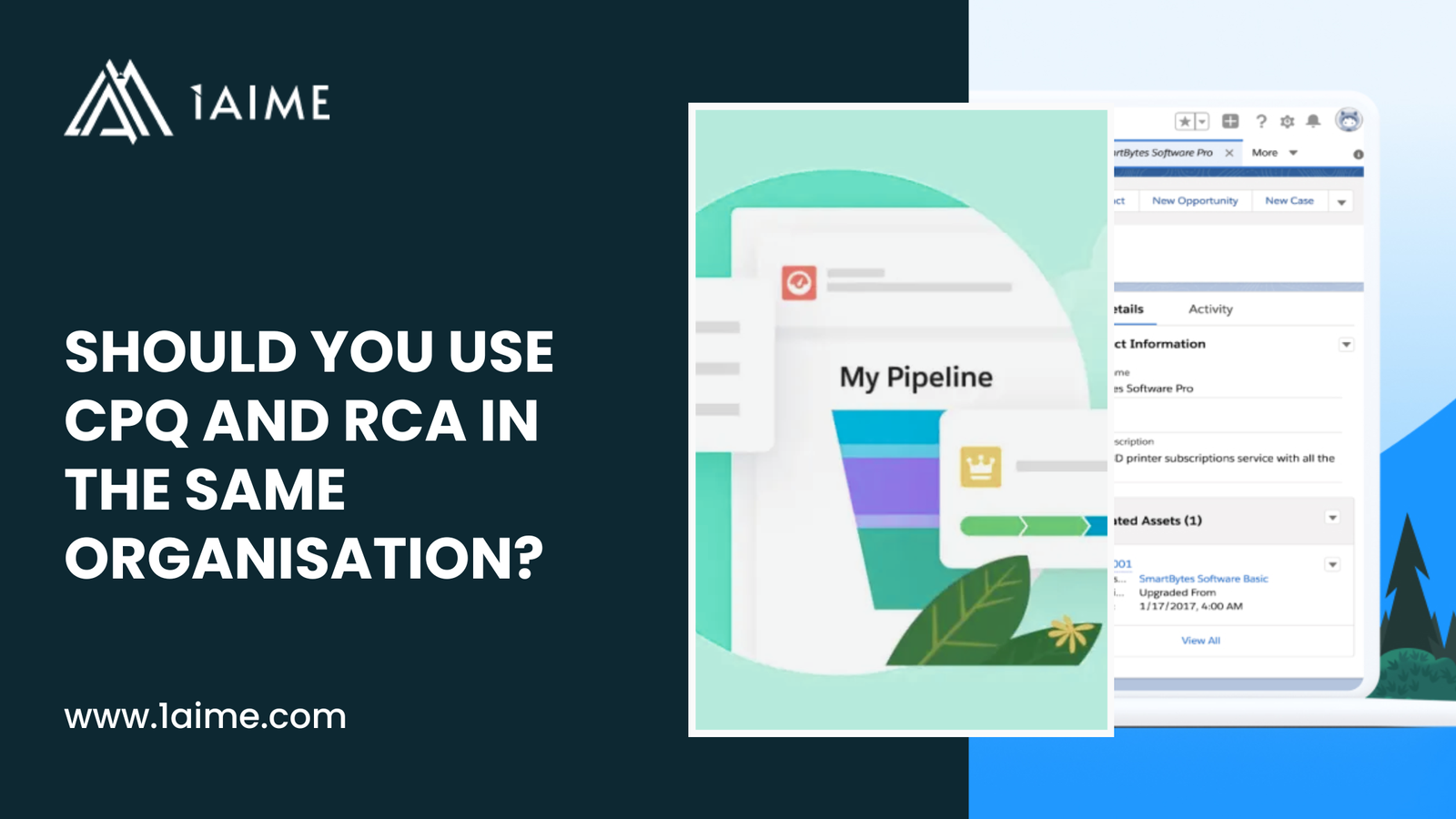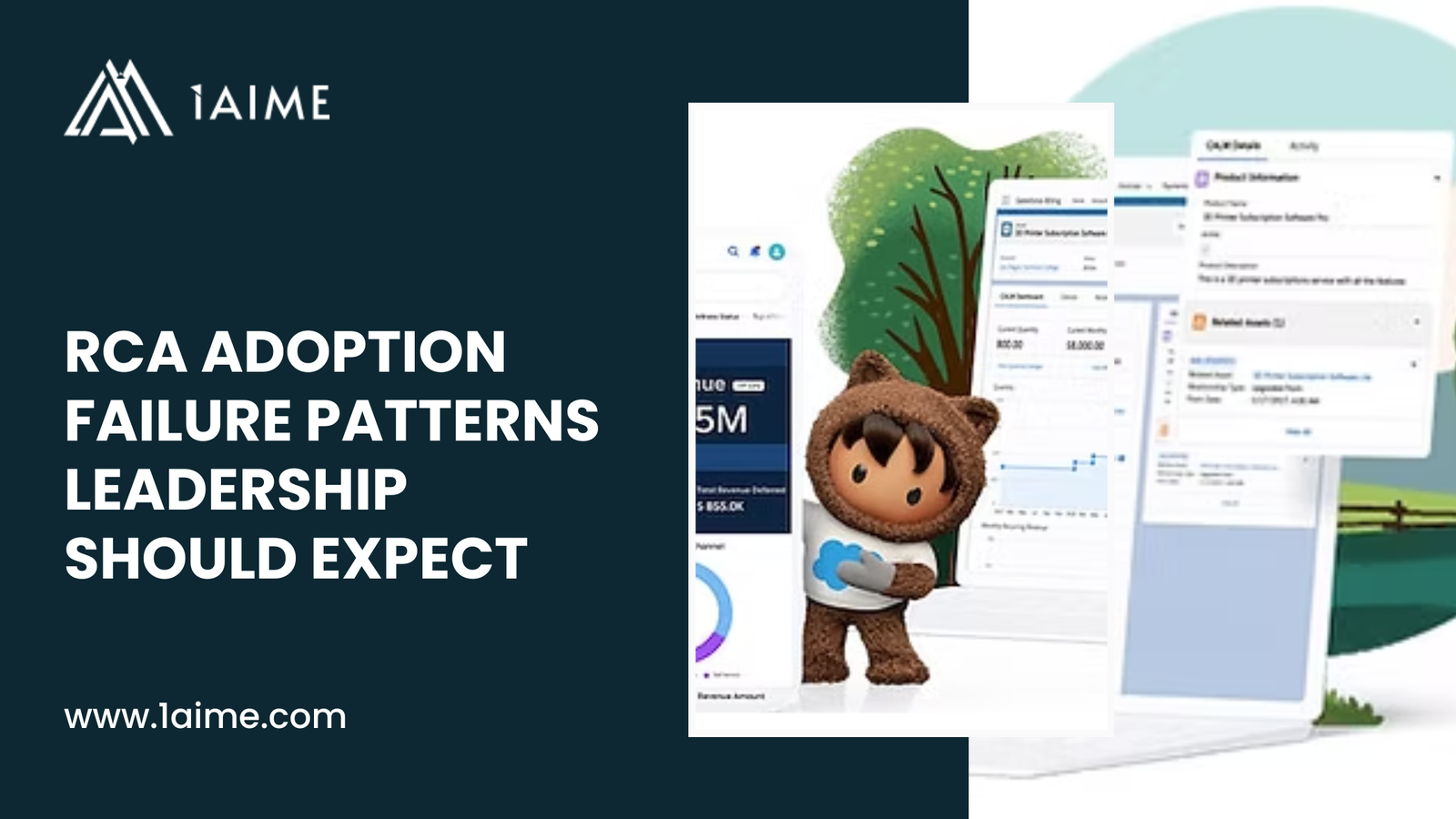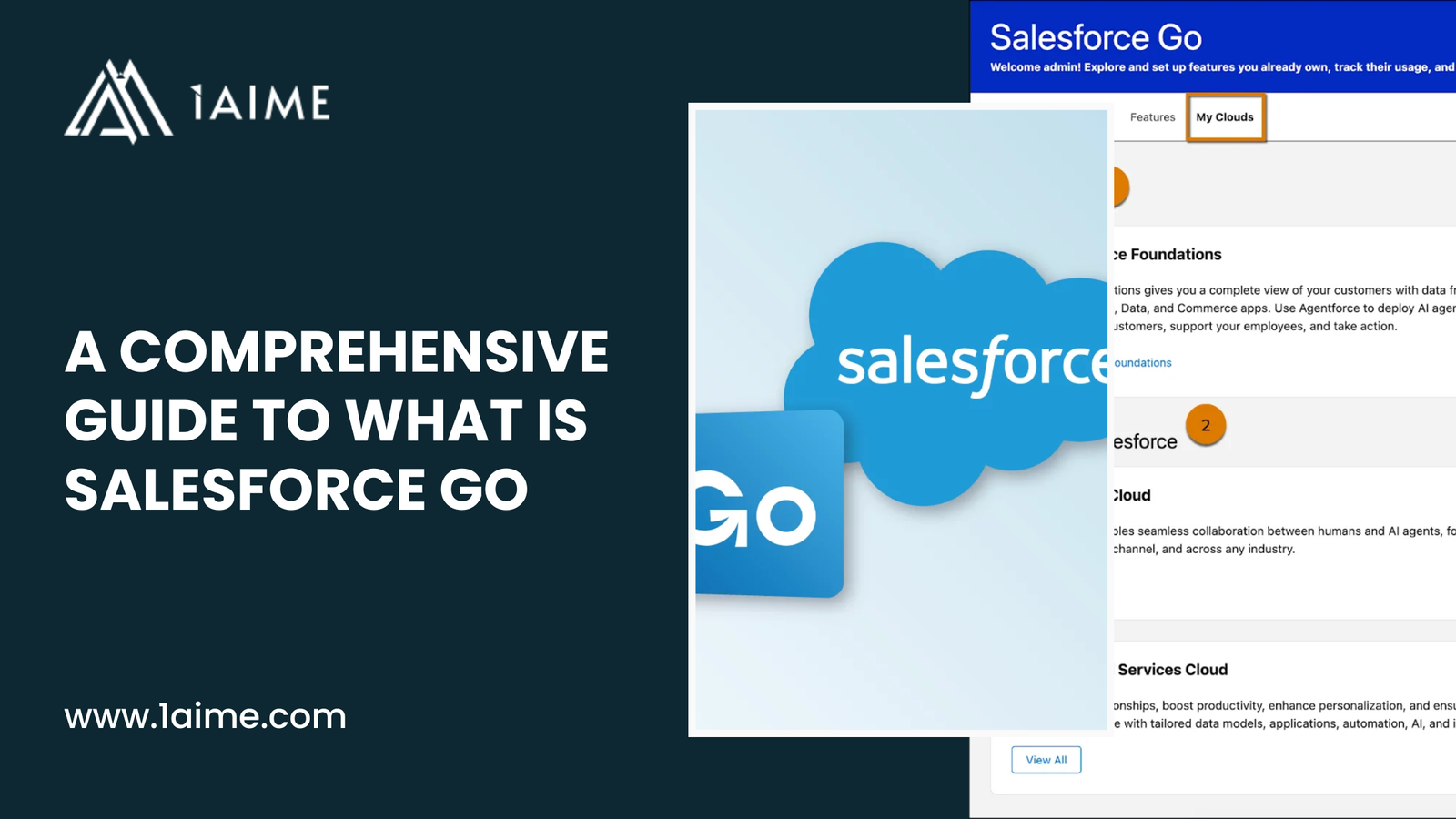Salesforce undoubtedly stands as the leading CRM platform for helping your business grow, scale, and compete. The system unites sales, service, marketing, data, and AI into one ecosystem.
However, you cannot leverage it in the best way possible without the right strategy. Guidance from professionals who understand Salesforce inside out is too important.
Try asking yourself critical questions like:
- Which Salesforce cloud fits your revenue model best?
- What features to configure for your sales, service, and marketing teams?
- Do we need a fresh implementation, or if optimisation of the current setup can deliver better ROI?
- How to integrate Salesforce AI into daily workflows so predictions actually lead to action?
- How to ensure compliance and data security while migrating and connecting multiple platforms?
- How to guarantee user adoption across teams after go-live without structured training and change management?
A Salesforce consultant knows how to answer each of these with precision. More importantly, a consultant leads with advisory to ensure that the platform bends to your business strategy, not the other way around.
Quick Tips for Choosing the Right Salesforce Consultant
It is important to choose the right partner or else it can turn your Salesforce investment into a burden of cost, confusion, and poor adoption.
Therefore, let us give you 8 tips that can help you evaluate partners with clarity and select one that secures a measurable ROI.
Match Consultant Roles to the Demands of Your Project
Salesforce projects need different specialists at different stages. Before hiring, clarify which of the following roles your initiative demands:
- Business Analyst Consultant – runs workshops, gathers requirements, translates processes into Salesforce workflows with tried and tested methodologies.
Solution Architect Consultant – designs the end-to-end Salesforce system and aligns it with business goals.
Technical Architect Consultant – validates design, manages integrations to ensure data flows into the right context for each persona, and safeguards scalability and security. - Administrator / Functional Consultant – configures dashboards, sets user permissions, leads adoption, and governance.
- Developer – codes Apex, builds Lightning Web Components, and delivers advanced custom integrations.
For example, a compliance-heavy financial rollout will need Technical Architects and Developers, while a mid-size sales enablement project may lean more on Business Analysts and Administrators.
Prioritise Business Strategy Over Certifications
Salesforce certifications look impressive on paper. You see badges and logos and start to believe the consultant must know everything. The truth is, certifications tell you the person can use the tool. Strategy tells you the person can grow your business with it. That is the difference you must focus on.
Let’s say you do bring in a consultant who treats Salesforce like a technical checklist. You may get dashboards, objects, and custom fields. But can you trace any of it back to revenue growth or customer retention? Probably not.
Now compare that to a partner who starts by asking: What are your growth targets this year? Where do you lose most deals? Which customer journeys matter most? That shift in questions shows you the kind of partner you need.
Here’s a practical example.
A retail brand wants to use Marketing Cloud. A technical consultant will set up journeys and campaigns because the system allows it. A strategy-led consultant will design campaigns that push repeat purchases and tie every click back to sales numbers. Same platform, completely different outcome.
So how do you follow this tip? Ask each consultant directly: “How will Salesforce connect to our top three business objectives?” If the answer sounds like jargon, walk away. If the answer sounds like pipeline growth, churn reduction, or faster deal cycles, you have found someone who treats Salesforce as a strategy, not a certificate
Measure ROI Clarity Ahead of Cost and Hours
Price is always the first thing leaders ask. How much will this cost per hour? What will the project total be? The better question is: what return will this investment create? A consultant who talks in hours is selling effort. A consultant who talks in ROI is selling outcomes.
Ask yourself straight. Would you rather pay $200 an hour for someone who saves your sales team 20 hours a week, or $100 an hour for someone who delivers work that no one adopts? The first option costs more on paper but returns more value to the business. That is what ROI clarity looks like.
Take an example.
A financial services firm paid a higher rate for a consultant who built an automated compliance check into Sales Cloud. The work cut audit preparation from three weeks to three days. The hourly cost faded in importance because the ROI was clear and measurable.
Here is how you follow this tip. Press every consultant to explain how their work ties back to financial outcomes. Ask: “Which part of this project will generate savings, speed, or revenue growth for us?” If the answer stays focused on features or timelines, you do not yet have ROI clarity. If the answer shows how each feature links to efficiency, customer value, or growth, you are on the right track.
Select Industry and Domain Expertise with Proven Depth
Salesforce works differently in every sector. A retail company needs loyalty tracking and promotions. A healthcare provider needs compliance, secure data flows, and patient journeys. A financial firm needs strict audit trails and real-time reporting. The platform is the same, but the demands are entirely different.
Industry expertise separates a generalist consultant from one who can guide you with precision. Ask yourself: do you want a partner learning the rules of your industry on your budget, or a partner who already knows the workflows, regulations, and pain points? The second option saves time, avoids risk, and gets you to value faster.
Here’s an example. A healthcare organisation hired a consultant with no background in regulatory processes. The system worked at first, but failed compliance checks later, costing six months of rework. Another provider chose a consultant with prior healthcare projects. The design included data governance from day one, so adoption moved smoothly and audits passed without issue.
Now, in order to follow this tip, ask the Salesforce consultant for specific proof. Case studies, client references, or examples from your industry should be on the table. Push further: “How have you solved problems in our sector before? Which compliance or operational hurdles did you anticipate?” The answers will show you whether the consultant has proven depth or just broad experience.
Adopt AI and Automation That Convert Insight into Action
AI now defines the competitive strength of Salesforce. Every cloud—Sales, Service, Marketing, Revenue, Experience—reaches its full potential only when intelligence drives the processes. A capable consultant positions AI at the centre of the operating model, ensuring predictions translate into actions across the enterprise.
Sales Cloud becomes stronger when AI forecasts deals, highlights accounts at risk, and prioritises leads for faster closing. Service Cloud improves when AI predicts resolution times, powers self-service, and routes cases with precision. Marketing Cloud gains impact when AI sharpens segmentation and personalises campaigns in real time. Each scenario proves that AI is not an optional layer but the core driver of measurable outcomes.
As a leader, ask the consultant pointed questions. “How will AI change the way my sales team works day to day? How will it reduce wait times in service? How will it improve marketing conversion?” Answers framed in outcomes show that the consultant understands how to empower Salesforce with intelligence.
Follow this tip by selecting a consultant who speaks about faster deal cycles, higher retention, and more effective campaigns. That is the sign of a partner who designs Salesforce around AI and automation, not just configuration.
Secure Accountability Beyond Launch
Go-live is not the finish line for Salesforce. Launching the platform without a plan for accountability leaves adoption flat, data fragmented, and ROI unclear. A capable consultant treats launch as the beginning of measurable performance, not the end of a project.
Accountability means governance, training, and adoption programs that extend the value of Salesforce far beyond day one. Sales teams need coaching to use new lead scoring models. Service agents need guidance on case management workflows. Executives need reporting that reflects business outcomes, not just activity. Without that structure, the platform risks becoming another system in the stack rather than the engine of growth.
Ask the consultant direct questions: “How will you ensure adoption after launch? What training programs will keep our teams engaged? How will you track ROI in the first 90 days and beyond?” Answers should connect to adoption metrics, usage milestones, and business performance indicators.
Follow this tip by choosing a consultant who commits to post-implementation support, hypercare, and clear accountability measures. A partner who owns outcomes after launch ensures Salesforce remains aligned with your strategy and continues to deliver return on investment quarter after quarter.
Engage Consultants with Executive Presence and Cultural Fit
Salesforce projects succeed when leadership and consulting partners speak the same language. A consultant who brings executive presence engages directly with the C-Suite, frames discussions in terms of business priorities, and challenges assumptions with evidence. Cultural fit matters equally, because alignment in ways of working builds trust and accelerates collaboration.
Consider two scenarios. One consultant focuses only on technical setup, speaking in system jargon and leaving leaders disconnected from the project. Another consultant steps into boardroom conversations, links Salesforce choices to revenue growth, and adapts to the client’s style of decision-making. The second partner drives adoption, builds confidence, and secures long-term alignment.
Ask yourself and your team: “Will this consultant sit confidently with leadership and guide strategy? Will they adapt to our culture, pace, and expectations? Will they challenge us when needed?” The answers to these questions reveal whether you are selecting a service vendor or a true partner.
Follow this tip by prioritising consultants who can move fluidly between technical execution and executive dialogue. A partner with presence and cultural fit does more than deliver a platform. That partner unites leadership and teams under one strategy and ensures Salesforce becomes an enabler of lasting growth.
Choose the Right Implementation Model for Scale and Control
How you engage Salesforce talent defines the balance between control, accountability, and flexibility. Decide which implementation model fits your priorities:
- Internal Salesforce Team – long-term control with in-house Admins, Developers, and Architects. Works best for enterprises building Salesforce as a permanent capability.
- Salesforce Consulting Partner – certified partner firm with structured methodology, governance, and industry depth. Best for enterprise-scale or multi-cloud rollouts.
- Independent Salesforce Consultant – contractor or freelancer offering niche expertise and agility. Suits targeted projects, quick fixes, or interim leadership roles.
For example, a retail brand expanding to multiple regions may rely on a Consulting Partner for the initial rollout, then engage independent consultants later to fine-tune marketing automation.
Questions You Must Ask Before Onboarding a Consultant
- How will Salesforce connect directly to our top three business objectives?
- How will you decide which Salesforce cloud or solution model fits our business best?
- What proven results have you delivered in our industry, and can you show case studies?
- What steps will you take to ensure our aim matters in every decision you recommend?
- Which Salesforce clouds and AI capabilities will bring the highest ROI for our business?
- How do you approach data migration, integration, and governance to keep systems reliable?
- What adoption and training programs will you provide after launch?
- How do you measure ROI in the first 90 days, and what metrics do you track long term?
- Who from your team will engage with our leadership, and how often?
- What is your methodology for managing scope, timelines, and accountability?
- How scalable is the model you will build for us as we grow in size and complexity?
- What ongoing support, hypercare, or managed services do you provide?
Common Mistakes to Avoid While Choosing a Salesforce Consultant
| Mistake | How to Avoid |
| Focusing on certifications without strategy alignment | Always ask how Salesforce will connect to your business objectives, not just which certifications the consultant holds. |
| Selecting partners without industry experience | Request case studies or client references in your industry to confirm proven results and compliance knowledge. |
| Ignoring post-launch accountability | Confirm that the consultant provides training, governance, and adoption programs beyond go-live. |
| Making decisions based on the lowest cost | Evaluate ROI clarity over price by asking how each step ties to measurable financial or operational outcomes. |
| Overlooking cultural fit and executive presence | Engage the consultant in leadership-level conversations to check alignment with your culture and decision-making style. |
| Failing to assess scalability | Ask how the solution will expand as your business grows, ensuring today’s architecture supports future complexity. |
Partner With 1AIME For Professional Salesforce Consulting in UK and Beyond
High-stakes decisions demand a consulting partner that aligns strategy, technology, and measurable outcomes. That’s exactly what we ensure right here at 1AIME.
Our Salesforce consultation experts work directly with C-Suite leaders to ensure Salesforce connects to the organisation’s top priorities. Strategy, AI, and adoption are integrated into every phase, so value is visible in the first 90 days and scalable across future growth.
What Sets 1AIME’s Salesforce Consulting Apart?
- Our advisory is led by AI, turning complex data into execution ready actions that drive measurable results.
- AIMcheck delivers an executive grade diagnosis that surfaces inefficiencies, misalignments, and missed ROI before scale.
- Every engagement is aligned with C Suite priorities so Salesforce outcomes remain anchored to enterprise strategy.
- ROI first delivery ensures that early business wins are visible within the first 90 days.
- End to end expertise spans architecture, integration, adoption, and hypercare, with full accountability built in.
- Flexible engagement models give leaders the choice of advisory, embedded teams, or managed services.
- Industry depth covers finance, healthcare, retail, SaaS, and more, backed by proven case studies and executive references.
No matter if you need a full enterprise rollout, a realignment of underperforming systems, or post-launch hypercare. 1AIME provides the expertise, accountability, and flexibility required for long-term ROI.
Start your consultation today or get Salesforce Healthcheck and bring Salesforce, AI, and business outcomes into one aligned strategy.




